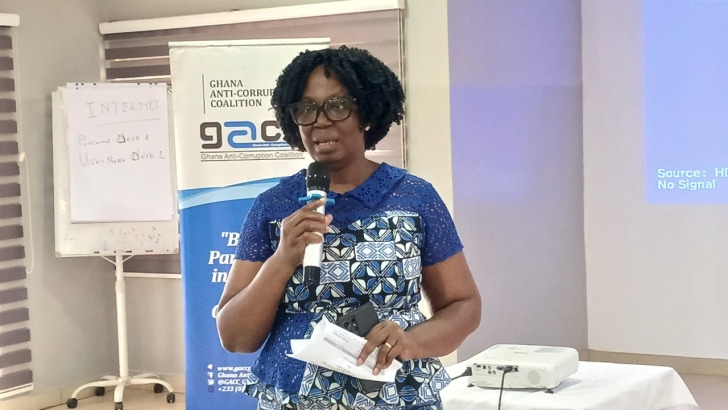The Executive Secretary of the Ghana Anti-Corruption Coalition (GACC), Beauty Emefa Nartey, has urged journalists to take keen interest in thoroughly following up on the Auditor-General’s Reports to promote accountability, transparency, and the protection of public resources.
She noted that the Auditor-General’s Reports provide a rich source of evidence on how public funds are managed, yet they often receive limited follow-up by the media after their release.
Mrs Nartey warned that without consistent media scrutiny, many infractions highlighted in the reports risk being ignored, allowing perpetrators of financial malfeasance to go unpunished.
Training
She made these remarks at the opening of a two-day training workshop on the 2024 Auditor-General’s Reports for selected journalists from across Northern Ghana on Monday.
Organised by the GACC in collaboration with the Ghana Audit Service, the workshop sought to strengthen journalists’ understanding of the 2024 Auditor-General’s Report and equip them with practical skills for investigative follow-ups on the findings and recommendations.
The training formed part of the “Building Evidence for Increased Accountability in Ghana through a Multistakeholder Accountability Initiative” project, funded by the Hewlett Foundation.
Less attention
In her address, Mrs Nartey observed that very little of the content of Auditor-General’s Reports was covered in the media, despite the critical role the reports played in exposing corruption and irregularities in the use of public funds.
She said journalists needed to break down the complex reports into simplified information that the public could easily understand.
According to her, doing so would not only raise awareness but also put pressure on duty bearers to implement corrective measures.
“The Auditor-General’s Reports are not just documents to be shelved. They are accountability tools. Journalists must see themselves as the bridge between the technical content and the ordinary citizen, and use their platforms to expose corruption and demand accountability,” she stressed.
She further urged the media to move beyond event reporting to investigative journalism that follows through on the recommendations of the Auditor-General to determine whether responsible agencies take action.
Collaboration
For his part, an Assistant Director of Audit at the Ghana Audit Service, Fredrick Lokko, explained that the Service plays a constitutional role in ensuring financial discipline across public institutions.
He added that the Service’s mandate includes not only auditing government accounts but also recommending corrective actions. However, he emphasised that effective collaboration with the media was necessary to ensure that audit findings reach the public domain and translate into real accountability.

